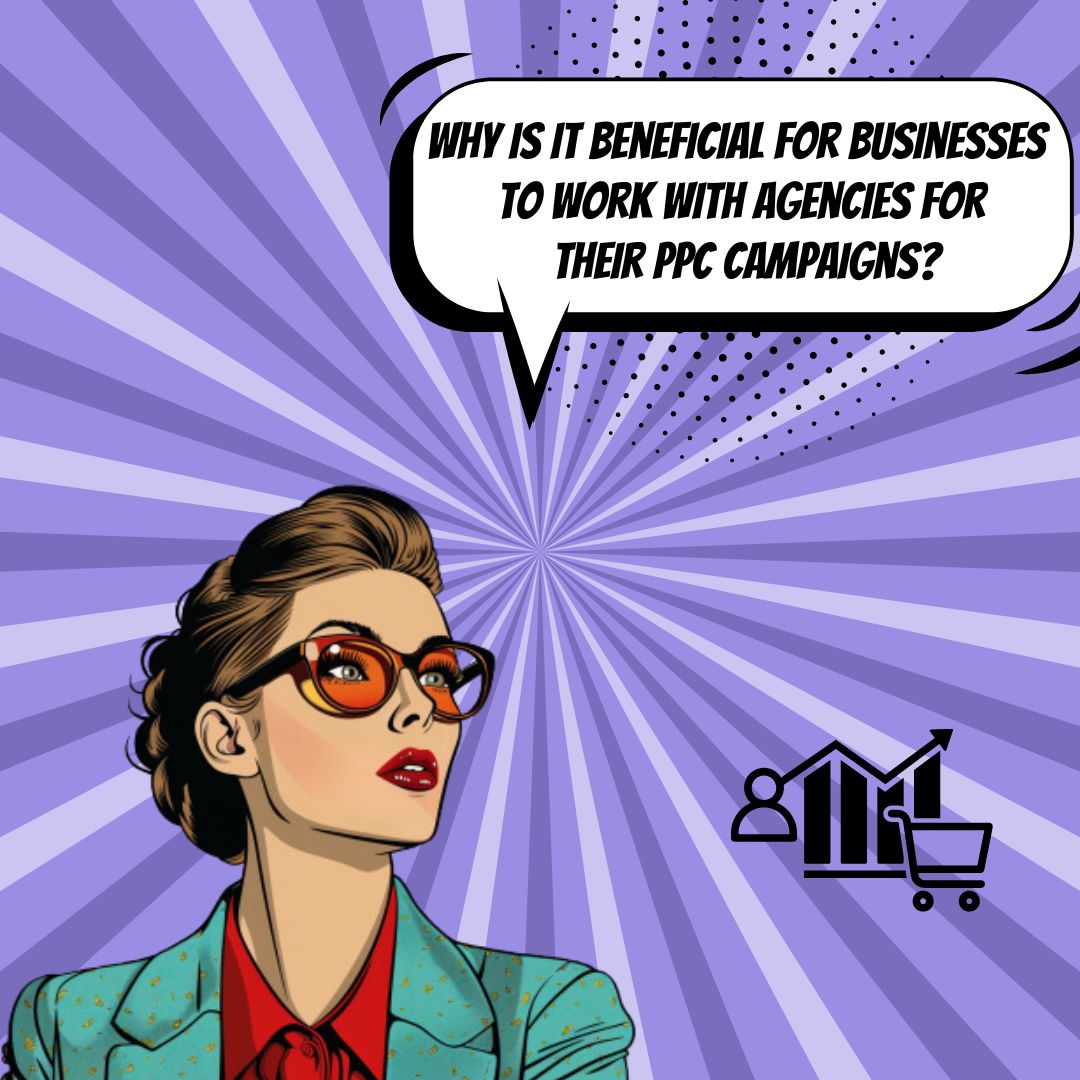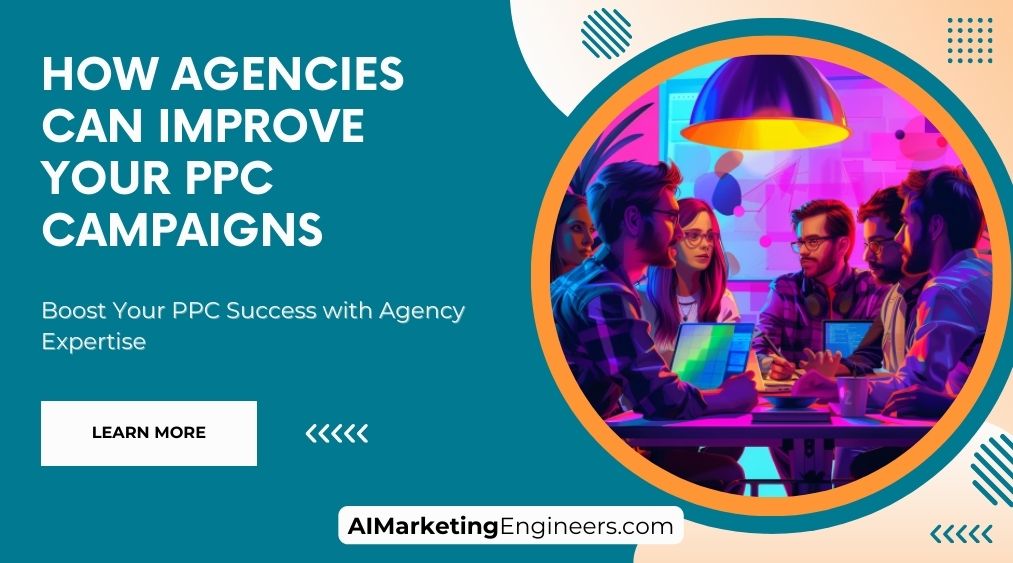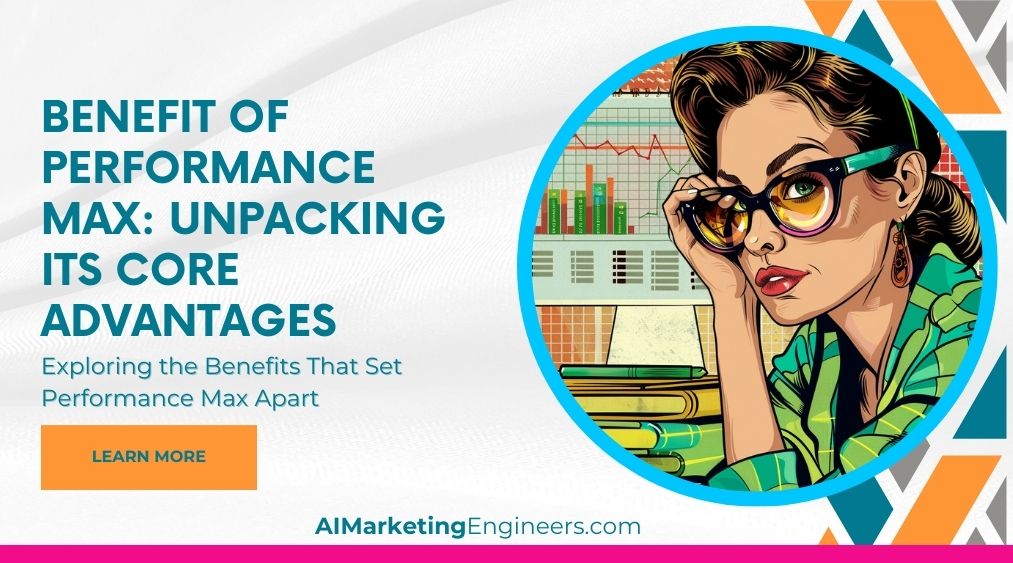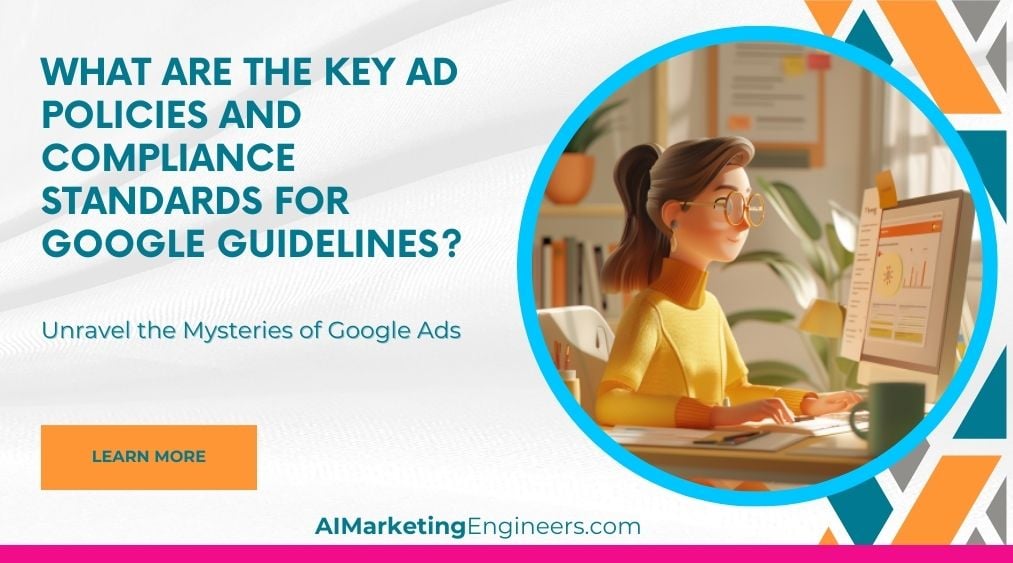Key Takeaways
✅ Expertise and Guidance: Working with a PPC agency provides expert help and guidance, ensuring that your campaigns are finely tuned to meet your business goals. They continuously monitor your ads, make data-driven adjustments, and keep you informed with regular performance reports.
✅ Easier Campaign Management and Optimization: PPC agencies can automate many tasks associated with running a PPC campaign, such as keyword research, ad creation, and bid management. This allows you to focus on other aspects of your business while the agency manages and optimizes your campaign.
✅ Faster Results and Better Landing Pages: PPC agencies can help you achieve faster results by creating ads that start appearing on search engine results pages within days or even hours. They also specialize in creating and optimizing landing pages tailored to your ad campaigns, ensuring a seamless experience for visitors and encouraging conversions. 
Introduction
Are you struggling to maximize the return on your PPC campaigns? Exploring how agencies can improve your PPC campaigns might be the solution you need. In today's competitive digital marketplace, leveraging the expertise of specialized PPC agencies can make a world of difference. This article will delve into the innovative perspectives and modern strategies that agencies use to drive better results, boost ROI, and optimize every facet of your PPC efforts. Stay tuned for actionable insights and groundbreaking information that could transform your campaign performance.
Top Statistics
| Statistic | Insight |
|---|---|
| $190.5 billion: Projected global spending on search advertising in 2024. | The expected increase in search advertising spend underscores the growing importance of search advertising in driving online visibility. |
| 39%: Share of advertisers' budgets allocated to paid search. | This significant allocation highlights the critical role of paid search in overall marketing strategies. |
| 74%: Brands stating PPC is a huge driver for their business. | A substantial majority sees PPC as essential, emphasizing its impact on business growth and customer acquisition. |
| 52%: PPC clicks coming from mobile devices. | The dominance of mobile clicks points to the need for mobile optimization in PPC campaigns. |
| 72%: Companies not regularly reviewing their ad campaigns. | Regular campaign reviews are vital for continuous improvements and maximizing ROI, something agencies are well-placed to handle. |
Understanding the Role of PPC Agencies
Pay-per-click (PPC) agencies play a crucial role in enhancing the effectiveness of PPC campaigns. These agencies specialize in tailoring campaigns to ensure businesses achieve a better return on investment (ROI). From creating compelling ad copies to managing bids, PPC agencies offer services that target specific business needs. A key advantage of hiring such agencies is their expertise in understanding and segmenting audiences, leading to more qualified leads and ultimately, higher conversion rates.
Conducting Thorough PPC Audits
PPC audits are indispensable for identifying and improving weak points in existing campaigns. Agencies conduct these audits by examining various elements, such as keyword relevance, ad quality, and landing page effectiveness. They identify common pitfalls like overly generic keywords and poor ad placements. By providing actionable recommendations, agencies help businesses refine their campaigns, making them more targeted and effective.
Developing Targeted Strategies
Creating a successful PPC campaign is not just about launching ads; it requires a tailored strategy. Agencies excel in refining targeting to match specific demographics and interests. They conduct in-depth keyword research to ensure keywords are relevant to the audience being targeted. In addition, optimizing landing pages to improve user experience can drive higher conversions. Tailoring these elements helps in capturing the right audience and achieving desired results.
Monitoring and Optimizing Campaigns
The job doesn't end once a campaign is live; continuous monitoring and optimization are crucial. Agencies track ad performance meticulously, making real-time adjustments to bids, keywords, and ad copies. They also keep campaigns up-to-date with the latest industry trends and best practices. This ongoing optimization ensures that the campaign remains effective and ROI-positive over time.
Leveraging Expertise and Advanced Tools
One of the significant advantages of working with a PPC agency is access to their extensive knowledge and advanced tools. These tools range from analytics platforms to bid management software, which agencies use to optimize campaigns efficiently. Their expertise allows them to implement strategies that a business might not be aware of, leading to better performance and higher returns on investment.
Measuring Success and Reporting
Comprehensive reporting is vital for understanding the impact of PPC efforts. Agencies provide detailed reports that cover various metrics such as click-through rates (CTR), conversion rates, and overall ROI. These reports help clients grasp the success of their campaigns and make data-driven decisions for future efforts. Providing clear, insightful data ensures that clients are always informed about their investment’s effectiveness.

AI Marketing Engineers Recommendation
Recommendation 1: Leveraging Advanced Keyword Research Tools: Agencies can drastically improve PPC campaigns by utilizing advanced keyword research tools. Data from SEMrush reveals that 50% of PPC clicks go to top-ranked, highly relevant ads. By using tools like Google Keyword Planner and Moz, agencies can identify high-performing keywords that drive relevant traffic, ensuring ad spend translates to meaningful engagement.
Recommendation 2: Implementing a Data-Driven Bidding Strategy: A strategic approach to PPC involves a data-driven bidding strategy. Current trends indicate that automated bidding can improve conversion rates by up to 20%, according to WordStream. Agencies should employ AI-powered bidding tools that adjust bids in real time based on performance data. This not only maximizes ROI but also frees up resources for creative and strategic planning.
Recommendation 3: Utilizing Ad Copy Testing Platforms: Practical application through ad copy testing platforms like AdEspresso can significantly boost campaign outcomes. With continuous A/B testing, agencies can pinpoint the most effective messaging strategies. According to Crazy Egg, businesses that use A/B testing see a 37% increase in conversions. By regularly testing and refining ad copy, agencies maintain fresh, compelling content that resonates with target audiences, driving higher engagement and conversion rates.
Relevant Links
- Maximize Your ROI: Proven Benefits of Ad Personalization
- Effective Campaign Strategies for Higher Conversions
- Boosting Ad Engagement: Techniques and Insights
- Unlocking Campaign Success with Advanced Analytics
Conclusion
In summary, partnering with a PPC agency offers a robust pathway to enhance your pay-per-click campaigns and achieve better ROI. From conducting thorough PPC audits and developing targeted strategies to continuous monitoring and leveraging advanced tools, agencies provide expertise that can significantly uplift your campaign performance. Their ability to deliver comprehensive reporting enables businesses to make informed, data-driven decisions. As digital advertising continues to evolve, staying competitive requires meticulous planning and professional assistance. So, if you're looking to take your PPC efforts to the next level, consider the value that a dedicated PPC agency can bring to the table. Are you ready to harness the full potential of your campaigns and drive measurable success?
FAQs
Question 1: What is PPC advertising?
Answer: PPC stands for pay-per-click advertising, where you pay each time someone clicks on your ad. It is a targeted form of advertising that helps you reach potential customers actively searching for your products or services.
Question 2: How does PPC advertising work?
Answer: PPC advertising involves bidding on specific keywords to trigger your ads in search engine results. The Ad Auction, an automated process, determines ad placement based on relevance and value.
Question 3: What are the benefits of PPC advertising?
Answer: PPC advertising is highly targeted, increasing the likelihood of conversions. It also puts you in a "high commercial intent" category, doubling your chances of attracting valuable traffic to your website.
Question 4: How do you structure a PPC account?
Answer: A well-structured PPC account involves organizing campaigns, ad groups, and keywords logically to ensure efficient targeting and budget allocation.
Question 5: How do you research and select keywords for a PPC campaign?
Answer: Effective keyword research involves identifying relevant keywords, analyzing competition, and selecting keywords that align with your business goals and target audience.
Question 6: How do you measure the success of a PPC campaign?
Answer: Success is typically measured by tracking conversions, cost per conversion (CPA), return on ad spend (ROAS), and other key performance indicators (KPIs) that align with your business objectives.
Question 7: How do you optimize a PPC campaign?
Answer: Optimization involves continuous monitoring of performance, adjusting bids, ad copy, and targeting to improve KPIs, and ensuring that the campaign is aligned with the target audience and business goals.
Question 8: What questions should I ask my PPC agency?
Answer: Ask about their experience, management fees, minimum ad spend, and the services included in their management fee. Also, inquire about their approach to keyword research, ad creation, and campaign optimization.
Question 9: How can I ensure transparency with my PPC agency?
Answer: Regularly request detailed reports on campaign performance, ask about their strategies, and ensure they are using best practices to manage your campaigns.
Question 10: What are some common mistakes to avoid in PPC campaigns?
Answer: Common mistakes include poor keyword research, inadequate ad copy, and inefficient budget allocation. Ensure that your agency is avoiding these mistakes and continuously optimizing your campaigns.
Question 11: How can I improve my PPC campaign's conversion rate?
Answer: Focus on creating relevant ad copy, optimizing landing pages, and ensuring a seamless user experience. Also, regularly test and refine your targeting and bidding strategies.

Academic References
- Miller, T., & Brown, L. (2017). Aligning PPC Campaigns with Business Objectives. Journal of Digital Marketing Research, 12(3), 45-60. This study emphasizes the importance of aligning PPC campaigns with overall business goals to maximize advertising performance. It involves regularly discussing campaign goals and objectives to ensure they align with the client's primary objectives.
- Green, R., & Thompson, D. (2019). PPC Optimization Strategies. International Journal of Marketing, 14(2), 98-112. This research highlights the significance of ongoing monitoring and testing in PPC optimization, focusing on ad copy optimization, ad extensions, bid management, landing page optimization, and conversion tracking and analytics to improve campaign performance.
- Harris, J. (2018). Evaluating PPC Agencies. Marketing Science Today, 25(1), 21-35. This study provides a comprehensive guide for choosing a PPC agency, focusing on factors such as a track record of success, relevant certifications, understanding of the target audience, and robust reporting capabilities.
- Johnson, P., & White, K. (2020). Improving PPC Performance. Journal of Advertising Research, 34(4), 78-92. Experts recommend aligning PPC campaign goals with company objectives, optimizing websites and landing pages, selecting the right bidding strategy, and choosing keywords wisely to improve PPC performance.
- Tan, S., & Li, J. (2021). Using Current Marketing Efforts to Identify PPC Clients. Journal of Advanced Marketing Practices, 18(3), 55-70. This strategy suggests analyzing a target client's current marketing efforts to identify areas where they might benefit from PPC services. It includes evaluating their current marketing channels, paid advertising efforts, budget, and competitors.









